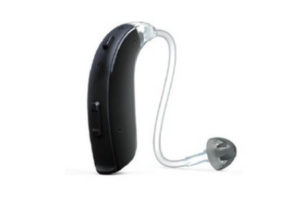Hearing aids are an investment in your well-being. It is important to protect those investments as best you can. Here are some tips to help keep your hearing aids lasting for a long time.
Tip #1: Be aware of the temperature.
- Avoid excessive heat and cold. Do not leave your hearing devices in a hot car in the summer or a cold car in the winter.
- Do not use a hair dryer while wearing hearing devices.
- Humidity and hearing devices do not mix. If you live in a humid environment, purchase a hearing devices dehumidifier.
Tip #2: Avoid moisture and water.
- Remove your hearing devices at the hairdresser or barber.
- Use an umbrella or hooded raincoat when it is raining.
- Make sure your hair and ears are completely dry before inserting your hearing devices.
- Remove your hearing devices at night and open the casing door to allow air to ventilate the interior.
Tip #3: Avoid shock and vibration.
- Hold the hearing devices over a cushioned surface when changing the battery.
- Store your hearing device in the cushioned case it came in.
- To avoid accidents, sit down to insert or remove your hearing devices.
Tip #4: Regularly clean the outer shell of your hearing devices.
- To clean an in-the-ear hearing device externally, wipe it off with a dry cloth. Then brush across the receiver opening with the wax brush that came with your hearing device.
- To clean behind-the-ear hearing devices externally, wipe off the hearing device with a dry cloth. Remove the ear mold and wash in warm, soapy water. Rinse and dry thoroughly. Allow ear mold to dry overnight.
- At least every six months, take your hearing devices to your audiologist for a thorough “clean and check.”
Tip #5: Use hair, shaving and cosmetic products carefully.
- Perfume, hair spray, bath powder, shaving cream, cosmetics and hair gel can all clog the microphone of your hearing devices.
TODAY’S HEARING is more than happy to help you keep your hearing aids lasting for a long time. Call (281) 578-7500 to schedule a thorough cleaning of your devices.
Hearing loss usually develops gradually, making it difficult to notice in many cases. People often suffer from impaired hearing for years before receiving the treatment they need. The average patient, in fact, waits seven years before seeking help. Untreated hearing loss leads to a number of potentially serious mental and physical health problems, including dementia, Alzheimer’s disease, depression, anxiety and deteriorating physical health.
It’s important to understand the links between your health and your hearing. By staying aware of your overall physical and mental health, you are better equipped to detect a hearing loss early. This allows an audiologist to treat your hearing loss more efficiently and effectively.
Following the Signs
In order to recognize a hearing loss in you or a loved one, you need to know the signs and symptoms. Some typical behaviors amongst people with hearing loss include asking others to repeat themselves, zoning out during group conversations, struggling to hear women and children and turning up the volume on the TV and radio. There are also a few health problems that may indicate a hearing problem:
- A ringing in the ears — This symptom, called tinnitus, affects approximately 50 million Americans. It can indicate a number of health problems and is often a sign of hearing loss.
- Depression — As hearing loss develops, it becomes harder and harder for the person affected to connect with the world around them. As hearing and communication abilities decline, it can cause withdrawal, sadness, stress, anxiety and self-doubt.
Knowing Your Risk
Many health issues and treatments can cause hearing loss, and it’s important to understand if you are at risk so you can get your hearing tested regularly. There are more than 200 ototoxic medications known today, and they have all been directly linked to auditory system damage. Some of the most common ototoxic over-the-counter and prescription drugs include certain antibiotics, chemotherapy drugs, loop diuretics, anti-inflammatory (NSAID) pain relievers and salicylate pain relievers like aspirin.
Several health and medical problems are also directly linked to hearing loss. These include Meniere’s disease, diabetes, cerebrovascular disease, certain autoimmune disorders and infections including herpes, influenza, measles, mumps, syphilis and meningitis.
If you, or a loved one, are concerned about the correlation of your health and your hearing, call TODAY’S HEARING at (281) 578-7500 and let us perform an audiological evaluation. Medicare and most private insurance companies cover the hearing test. Our staff is more than happy to verify your insurance benefits for you.
